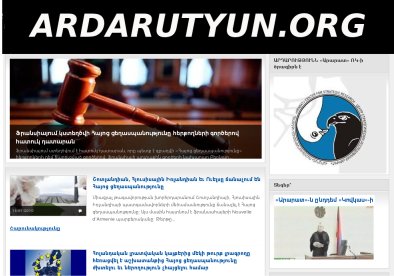|
choose language [english] [armenian] [russian] |
|

|
HOME :: ANALYSIS
Problem of Preconditions and Prospects of Armenian-Turkish Relations By Armen Ayvazyan The glaring theoretical confusion and situational policy making by Republic of Armenia’s (RA) Foreign Ministry involve several vitally important areas, including:
What’s more, the uncertainties of RA foreign policy in these areas are not clear either to the Armenian public or to the international community, albeit from a different perspective. The new chapter of Armenian-Turkish conflict, with the absence of settlement, needs above all a correct political assessment and diagnosis. In this respect, it is worth examining the principle of preconditions put forth by Ankara in return for normalizing Armenian-Turkish relations on the one side, and the principle of dropping all preconditions by Yerevan on the other. Let us examine these preconditions from several perspectives. In terms of methodology, how productive is the Armenian side’s principle of normalizing relations without preconditions, when the Turkish side puts forth numerous and ever-changing preconditions? In our opinion, the Armenian side’s disavowal of any preconditions is wrong both theoretically and practically. In practice, the last 17 years affirm that Armenia’s soft policy has not ensured any political gains. Meanwhile, Turkey has not been pressured or, better yet, condemned for imposing years of blockade and diplomatic pressure, unleashing full-scale informational and psychological warfare campaigns, threats and blackmail against Armenia in coordination with Azerbaijan. In the present conditions of Armenia’s submissive policy Turkey’s policy of putting forward preconditions has fully justified itself. Turkey would not have succeeded so much, if Armenia had put forth its own preconditions for normalizing relations. Theoretically, Armenia is construed as the role of the party who is guilty and conceding: after all, Yerevan does not demand anything, while the Turks present many demands. In terms of propaganda, by dropping preconditions Armenia has lost a wonderful opportunity to present and comprehensively explain the animosity of Turkey’s foreign policy and its full danger to regional peace and security. What’s more, the prolonged absence of an adequate assessment of Turkey’s policy has seriously confused the Armenian public as well, which is in no less need for explanations and clarifications than the international community. In terms of diplomatic maneuvering, Yerevan’s expressed position for establishing relations without preconditions, including opening borders immediately, may cause maximum difficulties and problems, if Turkey agrees to it at any moment. This refers to the kind of economic and demographic assault, to which the Turks will resort and which Armenia is still not ready to withstand. In terms of national security, without the proposal and fulfilment of certain preconditions of the Armenian side, the opening of Armenian-Turkish borders will quickly undermine Armenian Republic’s still nascent national security system. Yet Turkey will present this step as a significant concession on its part. In reality, Yerevan’s principle of abandonment of preconditions is nothing more than a policy of unjustified concessions, including in the issue of overcoming the consequences of the Genocide. Armenia is also conceding in the Artsakh problem, an integral issue of the Armenian Question, and does not link it with the problem of redressing the consequences of the Genocide. And what should be the preconditions put forth by Armenia? At first, rejection of hostile policy, including:
In fact, these preconditions represent the essential confidence-building measures in any future realistic rapprochement between Armenia and Turkey. Without their fulfilment, the opening of borders and establishment of diplomatic relations not only will bring nothing good for Armenia, but will create a new and more complicated situation. Unfortunately, instead of undergoing a re-evaluation, the RA foreign policy continues to consistently follow the direction that was chosen in the beginning of the 1990’s, but which leads to a dead-end. -----------------[ * ] This report was first read on July 14th, 2008, at the “Principles of Foreign Policy of Armenia” seminar organized by the Civil Society and Regional Progress Institute. For media coverage of this speech, refer to Гаянэ Мовсесян, “Есть ли у Армении внешняя политика?”, Республика Армения, № 052 (621), 16 июля 2008 (http://blog.ararat-center.org/?p=60). |
|
all rights reserved 2007-2013 site designed and developed by Impresario Productions & "Ararat" Center
Yerevan, Ayguedzor Imp. 10, E-mail: info @ ararat-center.org
|
|
|
|
|

